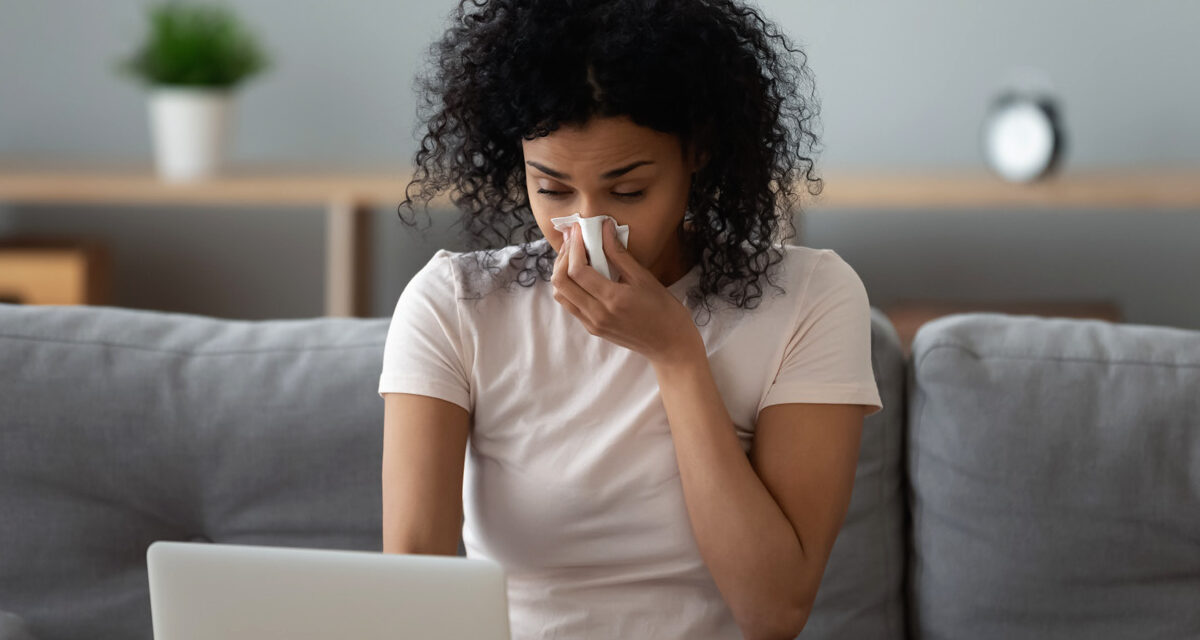Every year in mid-February, tree pollen hits the Mid-South. As the season progresses, a thick green film covers sidewalks and cars. For 80% of people, this is a mere annoyance, but for the rest, this time is marked by misery.
Adults and children with seasonal allergies often dread this time of year. Others, however, may suffer year round. Allergy symptoms can include congestion, drainage, runny nose, itchy/watery eyes, and sneezing. They greatly affect quality of life. For example, people with eye allergy symptoms often have trouble wearing contact lenses due to irritation. Others may not even bother applying eye makeup knowing that watery eyes will just wash it away. Some are frightened by sneezing fits while driving a car. Nasal congestion may be complicated by recurrent sinus and ear infections. Many also complain of fatigue or a generalized fog when bothered by seasonal allergies. In fact, during allergy season you can lose up to four days of productivity a month.
The first step in managing allergies is often to identify individual triggers. These can be identified a number of ways. Some may walk into a home with a cat and experience immediate itching, sneezing, and watery eyes. Others may have symptoms during yard work. Hours after a thorough house cleaning, a person can notice congestion or a headache. Triggers can literally be found everywhere and often identified by exposure alone. Others may find it hard to identify what in the environment is irritating. Allergy skin tests can be useful in confirming suspected triggers and can often pick up other triggers that weren’t suspected at all.
Despite the many triggers, there are effective treatments to control symptoms and improve quality of life. Allergy treatment is a three-part program: environmental control, medication, and allergen immunotherapy or allergy shots. Allergen immunotherapy is an extremely beneficial long-term solution and medications can offer immediate relief. However, many prefer a more homeopathic route. For those affected by allergies, there are things that can be done in their environment to limit exposure to potential allergy triggers.
Although skin allergy testing can be helpful in directing those control measures, some may rather do a blanket approach to control their environment. Measures can be taken for both indoor and outdoor allergens. Outdoor allergens include pollen from trees, grass, weeds, and outdoor molds. Mold can also be an issue indoors, as can dust mites, cockroaches, and furry pets.
For those triggered by outdoor allergens, the following tips can help reduce exposure.
Pollen
- Keep house and car windows closed at all times.
- Use the air conditioner to attempt to remove pollen from the air before entering your indoor environment. Change your filters monthly.
- Avoid mowing, doing yard work, and gardening without using a mask and eyewear.
- Limit outdoor activities on dry, windy days.
- Do not dry bedding or clothes outside.
- Shower and wash hair after outdoor activities.
- Wipe pets’ paws when they come inside.
- Wash hands and avoid rubbing eyes.
- Be mindful of the pollen season.
- February through early April is tree pollen season, and it’s best to avoid the early morning hours.
- April through June is grass pollen season, and the best time to avoid is late morning.
- Ragweed pollen season is from late August through the first frost.
Outdoor Mold
- Wear a mask and eyewear white raking leaves, mulching, and working around hay.
- Pay attention to water leaks and standing water around the home.
- Avoid heavy mulch outside of bedroom windows on the first floor.
While outdoor allergies are seasonal, indoor allergies can be triggered year round. The following will help reduce your overall allergy load. Your allergy cup can only get so full, so by reducing your indoor allergen exposure, that means better symptom control when it comes to outdoor allergies.
Dust Mites
- Use dust mite covers pillows and mattresses.
- Wash al bedding on the hot cycle, which is the only cycle that kills dust mites.
- Avoid using humidifiers and fans in bedrooms.
- Remove old books, clutter, stuffed pillows, and upholstery in bedrooms.
- Ideally keep carpet and area rugs out of the bedroom.
- If rugs are present, wash them on a hot cycle once a week.
- For children, limit stuffed animals in their bedroom.
Indoor Mold
- Pay attention to water leaks.
- Dehumidifiers are helpful in homes with a basement.
- Clean mold in bathrooms with a bleach solution.
Cockroaches
- Routinely exterminate them with chemicals and traps.
- Avoid leaving food out and make sure it’s stored in sealed containers.
- Make sure seals to the outdoors are tight.
Animal Dander
- Limit indoor pets, as avoidance is the best treatment for allergies
- Ideally keep pets out of the bedroom.
- Wash pets weekly.
- Run a HEPA filter in bedrooms.
- Replace carpet with bare flooring.
- Wash the bedding pets sleep on weekly on the hot cycle.
- Avoid upholstered furniture.
- Use a vacuum cleaner with a HEPA system.
The list for controlling your environment may seem exhausting. I’m a fellow allergy sufferer and mother of three asthmatics, but I’m not perfect at complying with all of the above. When symptoms become unmanageable, allergy medications and allergy shots are my family’s mainstays.
Dr. McCulley has also been involved in the allergy community as the past President of both the Tennessee Allergy Society and Mid-South Allergy Forum. She also served on the Membership Committee of the American College of Allergy, Asthma & Immunology. She has numerous publications in Allergy & Immunology Clinics of North America and was the lead author of the Asthma Chapter of the Best Practice of Medicine. She was featured on the CNN Airport Channel for Community Education of Asthma. She was also featured on a CD distributed nationally to educate all primary care physicians on the Proper Diagnosis & Treatment of Asthma. Her most proud achievement professionally is the medical care she has provided and the relationships she has established with her adult and pediatric patients. For more information, call 901.623.3323 or visit Mcculleyallergy.com







